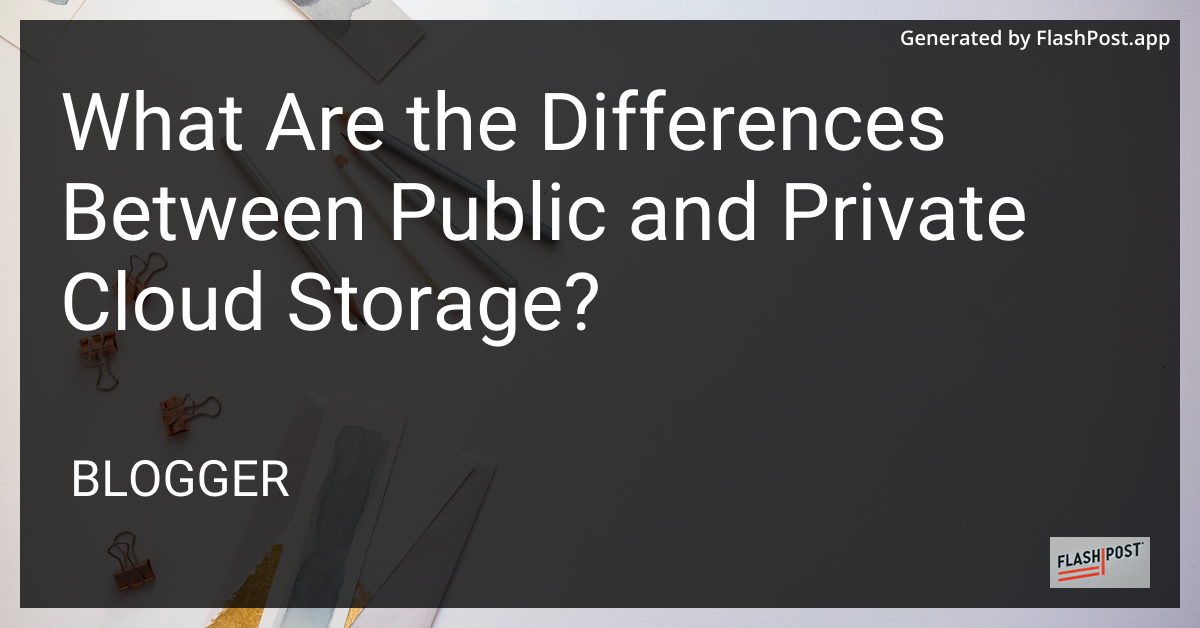What Are the Differences Between Public and Private Cloud Storage?

Differences Between Public and Private Cloud Storage
In an era where data is king, understanding the nuances between different cloud storage solutions is vital. When it comes to switching to cloud hosting, businesses and individuals often find themselves at a crossroads between public and private cloud storage. But what sets them apart? In this article, we will explore the significant differences between public and private cloud storage and highlight the advantages and disadvantages of each, ensuring you make informed decisions for your data-storage needs.
What is Public Cloud Storage?
Public cloud storage is a service offered by third-party providers over the internet, enabling users to store data remotely. This type of storage is typically hosted on shared servers, managed by companies like Amazon Web Services (AWS), Google Cloud, and Microsoft Azure. Public cloud solutions are ideal for users who require unlimited scalability and flexibility without the overhead of maintaining physical hardware.
Benefits of Public Cloud Storage
- Cost Efficiency: Pay-as-you-go pricing models allow you to pay only for the storage you use.
- Scalability: Easily scale up or down based on your storage needs.
- Accessibility: Access your data from anywhere with an internet connection.
What is Private Cloud Storage?
Private cloud storage is dedicated to a single organization, offering a higher level of control over data management and security. Private clouds can be hosted on-site or outsourced to a third-party provider, providing customizable infrastructure tailored to specific business requirements.
Benefits of Private Cloud Storage
- Enhanced Security: Greater control over your data and compliance with rigorous security standards.
- Customization: Tailor your cloud environment to suit specific business needs.
- Performance: Consistent and predictable performance without the “noisy neighbor” issue common in public clouds.
Key Differences
| Aspect | Public Cloud Storage | Private Cloud Storage |
|---|---|---|
| Cost | Lower initial cost, variable based on usage | Higher initial setup cost, but predictable over time |
| Security | Standard security measures | Advanced security controls, ideal for sensitive data |
| Scalability | Easy to scale with significant resources availability | Scalable but limited to physical hardware constraints |
| Control | Minimal control over infrastructure and management | Full control for customization and dedicated resources |
Conclusion
Choosing between public and private cloud storage depends on multiple factors like budget, security requirements, and scalability needs. For businesses aiming to handle sensitive data with strict compliance needs, the security and control of private clouds may be ideal. Meanwhile, the scalability and cost-efficiency of public clouds are perfect for businesses in need of flexibility and dynamic storage capabilities. For more insights on maximizing your cloud infrastructure, explore how to make a reverse DNS lookup on Cloudflare or set headers in Cloudflare to enhance your cloud services.
In making the right choice, it’s essential to weigh the pros and cons carefully, considering both current and future storage needs. Embrace the benefits of cloud storage that best aligns with your goals and infrastructure.
Comments
Post a Comment